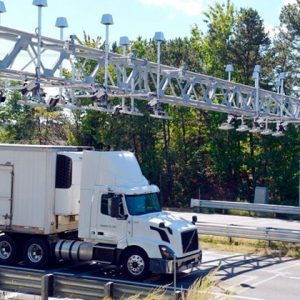Tolls are not nearly as simple as you might think
Excerpt from CT News Junkie, written by Joseph Sculley. As the Connecticut General Assembly contemplates instituting tolls on our major highways, policymakers must consider the full story. It’s not nearly as simple as “everyone else has them, so should we” or “put them on the borders so people from other states will pay.” We recognize…

Excerpt from CT News Junkie, written by Joseph Sculley.
As the Connecticut General Assembly contemplates instituting tolls on our major highways, policymakers must consider the full story. It’s not nearly as simple as “everyone else has them, so should we” or “put them on the borders so people from other states will pay.”
We recognize that our network of highways, roads, and bridges are congested, and need to be maintained and expanded. We certainly do not envy the job legislators have to figure out how to best fund this infrastructure. There are numerous facts that need to be considered when the General Assembly is researching what options will most benefit our state.
- TOLLS = TAXES: The Legislature is admirably striving to complete the budget without adding or increasing taxes. But it’s important to note that toll revenue comes directly from the pockets of Connecticut residents and businesses. There is no other way to describe it — tolls are taxes.
- TOLLS ARE REGRESSIVE: Lower-income individuals and families will be disadvantaged by inevitably high congestion-price tolls. Similarly, large corporations will have an advantage over small businesses. Those who can’t afford tolls will be forced off the highway.
- THIS PLAN IS UNPRECEDENTED: No state has ever put congestion-price tolls on a previously toll-free interstate highway corridor, such as the plans that are being considered for I-95.
- BORDER TOLLS ARE NOT ALLOWED: Border tolls would discriminate against interstate commerce and would result in Connecticut needing to pay back the federal government. Thus, nearly all Connecticut drivers will be affected. At the least, tolls will likely affect drivers on Interstate 95, Interstate 84, and the Merritt Parkway.
- TOLLS ARE INEFFICIENT: According to a study by the Transportation Research Board of the National Academy of Sciences, the administrative, collection and enforcement costs of a typical toll facility are 33.5 percent of the revenue generated.
- LOCATIONS (AND RATES) UNKNOWN: Current tolling legislation is vague, and does not specify what highways could be tolled or where the tolls would go. The Connecticut Department of Transportation would have broad authority to implement tolls.
- CURRENT TOLLING PLANS ARE DOUBLE TAXATION: Existing highways were built and maintained with fuel taxes and registration fees. Highway users would pay more for the same highways, and get nothing in return.
- CONGESTION PRICE TOLLS = PRICE GOUGING: If there is no cap on the toll, the sky is the limit. Toll prices can fluctuate based on traffic flow and just like any business, when there is a high demand, the price will rise. For example, if there is a snowstorm that brings traffic to a standstill (common in CT) toll prices could potentially skyrocket.
- THE “BAD GUYS” DON’T PAY: It has been noted that in other pilot toll programs, such as on the Henry Hudson Bridge, six percent of drivers got their bills in the mail and 2/3 of them never ended up paying. This results in millions of unpaid tolls and overdue fines; with this significant loss of revenue, the “good guys” who do pay will never reap any benefits.
- HIGHWAY ROBBERY: Unpaid tolls, whether on purpose or accidental, turn into hundreds or even thousands of dollars in fines and road toll agencies aggressively pursue drivers in an effort to up revenue.
Finally, it must be noted that out-of-state trucks do not get a “free ride” on our roads and highways. In fact, the trucking industry pays roughly 36 percent of all taxes owed by Connecticut motorists, despite trucks representing only 6 percent of vehicle miles traveled in the state. The most recent data available shows that Connecticut netted approximately $30 million in one year alone from fuel use tax revenue and registration fees from out of state trucks. Interstate agreements ensure that out of state trucks pay their fair share to Connecticut for their use of our infrastructure.
The above list highlights the many reasons why adding tolls to our Connecticut roads must be examined carefully. The idea may seem simple in concept, but the impact on Connecticut drivers is far reaching. Any value-add our state may experience would be overshadowed by these numerous concerns.
See more on this story at the CT News Junkie opinion pages.
